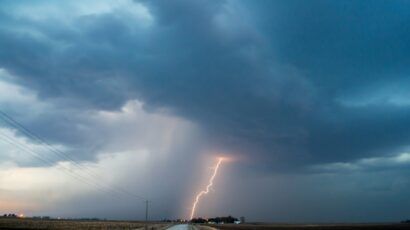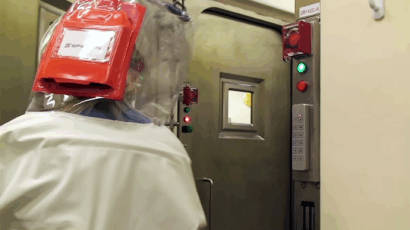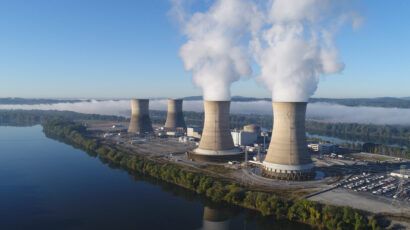The British government doesn’t want to talk about its nuclear weapons. The British public does
By Tim Street, Harry Spencer, Shane Ward | April 6, 2023
 The British nuclear submarine HMS Victorious, which is armed with Trident ballistic missiles, near Faslane in Scotland in 2013. Credit: UK MInistry of Defence
The British nuclear submarine HMS Victorious, which is armed with Trident ballistic missiles, near Faslane in Scotland in 2013. Credit: UK MInistry of Defence
In January 2023 British Pugwash and the polling company Savanta conducted a survey of UK public opinion on nuclear weapons issues and potential support for policies that advance nuclear arms control, disarmament, and non-proliferation.
The poll involved 2,320 UK adults who were asked about the Russia-Ukraine war, the United Kingdom’s ongoing replacement of its nuclear weapon system, the possibility that US nuclear weapons will again be stationed in the United Kingdom, the significant increase to the UK’s nuclear warhead stockpile cap, and the entry into force of the Treaty on the Prohibition of Nuclear Weapons.
Our polling results found some notable differences between the British public’s views and the policies of the UK government concerning nuclear weapons. While 40 percent of poll respondents support the United Kingdom possessing nuclear weapons, there is significant support for policies that would control, limit, or even eliminate the UK’s nuclear weapons—including among supporters of nuclear possession. For example, over a third of those who support the UK’s possession of nuclear weapons also support joining a multilateral disarmament treaty.
Despite the challenges involved, especially at a time of war in Europe, we at British Pugwash see an opportunity for UK political parties to adopt policies more supportive of nuclear arms control and disarmament. Our key findings revealed these differences between government policy and public opinion:
Use of nuclear weapons. The UK government’s policy is to consider using nuclear weapons “only in extreme circumstances of self-defence, including the defence of our NATO allies.” UK and NATO policy does not rule out the first use of nuclear weapons.
Our poll found that 48 percent of UK adults oppose the first use of nuclear weapons by the United Kingdom, and only 40 percent support first use. This finding builds on the results of the survey British Pugwash conducted in 2021, which found that two-thirds of the British public want NATO to renounce the first use of nuclear weapons.
Replacing nuclear weapons. The United Kingdom is replacing all four parts of its nuclear weapons system: submarines, missiles, warheads, and associated infrastructure. The estimated cost of the four new nuclear-armed submarines is £31 billion (about $38 billion), and the estimated total cost of replacing nuclear weapons between 2019 and 2070 is at least £172 billion ($212 billion).
Our poll found that 42 percent of UK adults think the estimated cost of replacing the UK’s nuclear weapons does not represent value for money.
Stationing US nuclear weapons in the United Kingdom. The UK government has previously allowed US nuclear weapons and nuclear-capable aircraft to be stored, maintained, and operated from UK military bases. Although the United Kingdom has not hosted US nuclear weapons since 2008, in April 2022 an analysis of US Defense Department documents reported that a facility at the Royal Air Force’s Lakenheath base in Suffolk—which is used by the US Air Force—was being upgraded, potentially allowing the United States to again deploy nuclear weapons there.
British public opinion is split over allowing the United States to deploy nuclear weapons on UK territory. Our poll found that 34 percent of UK adults oppose, and 32 percent support, stationing US nuclear weapons in the United Kingdom.
Treaty on the Prohibition of Nuclear Weapons. In 2017, 122 states voted in support of the Treaty, which prohibits the development, testing, production, acquisition, possession, stockpiling, and use of nuclear weapons, as well as any threat to use them. The United Kingdom has not signed or ratified the treaty. To join the treaty, the country would have to dismantle its nuclear arsenal or present a legally binding plan to do so.
Our poll found that 39 percent of UK adults support joining the ban treaty. Among 18- to 34-year-olds, 48 percent support joining the treaty, and only 13 percent are opposed.
Nuclear weapons possession. The United Kingdom is one of only nine countries possessing nuclear weapons. Our poll found that 40 percent of UK adults are in favor of possession. Women are far less likely than men to support UK possession (28 percent of women, compared with 53 percent of men). Some 26 percent of UK adults oppose UK nuclear possession, 29 percent neither support nor oppose nuclear possession, and 5 percent said they “don’t know” in response to this question.
Our poll also found that a minority of UK adults (39 percent) fully support the government’s decision to increase the UK’s nuclear warhead stockpile cap.
Even among supporters of nuclear possession, we found significant concerns about the government’s approach to nuclear weapons. For example, 23 percent of those who support nuclear possession don’t think the estimated cost of replacing the UK’s nuclear weapons represents value for money.
Furthermore, 37 percent of those who support UK nuclear possession do not want the military to use nuclear weapons first in a conflict. Notably, 36 percent of those who currently support the possession of nuclear weapons also want the United Kingdom to join the international ban treaty that would eliminate the country’s nuclear arsenal.
War in Ukraine. Our data indicate that Russia’s invasion of Ukraine has significantly strengthened support for UK possession of nuclear weapons among those who already favored possession. Two-thirds of those who support nuclear possession said the conflict strengthened their position on this issue.
We also saw increases in support for nuclear weapons possession among those who otherwise oppose nuclear possession. In our poll, 16 percent of those who oppose UK possession of nuclear weapons said the Ukraine conflict had increased their support for possession.
Responses to this particular question likely reflect wider public support for UK involvement in the Ukraine conflict and may thus be temporary. Moreover, 39 percent of UK adults said the Ukraine conflict had “made no difference” to their view on UK nuclear possession. Overall, our data suggest that a key impact of the Ukraine war has been to reinforce support for UK nuclear possession among UK adults who already held this view.
Uncertainty and ambivalence. Nearly a third of respondents gave an “on the fence” answer to several of the questions posed. For example, 29 percent said they did not support or oppose the UK’s possession of nuclear weapons; 30 percent said they neither support nor oppose the rise in the nuclear warhead stockpile cap; 28 percent said they neither support nor oppose US nuclear weapons again being stationed in the United Kingdom; and 29 percent said they “don’t know” or are “unsure” whether the estimated cost of the UK nuclear weapons replacement program represents value for money.
These findings indicate that there is significant uncertainty about, and ambivalence toward, nuclear weapons among UK adults.
Why our survey matters. Following Russia’s invasion of Ukraine, the risk of nuclear war involving the major powers has risen significantly. Any use of nuclear weapons would have extremely severe consequences for the world. The United Kingdom is a nuclear weapon state, plays a leading role in NATO, and is strongly supportive of—and deeply involved in—US global strategy, to which nuclear deterrence is central. The United Kingdom thus has an important role in maintaining the global nuclear order, and a commensurate responsibility to reduce nuclear threats and advance disarmament. Yet, as noted above, the UK government is engaged in a huge and costly nuclear rearmament program, is increasing its nuclear warhead stockpile cap, and has renounced transparency for its nuclear operations in its Integrated Review of 2021.
London is also providing extensive military support to Kyiv, both to help Ukraine defeat Russia and to weaken Moscow’s ability to undertake future military operations. However, the unpredictable nature of the war means that the risk of it escalating to a wider conflict between Russia and NATO, including the possible use of nuclear weapons, is very real. The president and secretary general of Pugwash have therefore called on the major powers to focus on diplomacy to attain a ceasefire, and “to start and conclude a negotiating process … aimed at avoiding further strife in order to ensure a lasting peace in the whole region.”
Greater public and parliamentary participation in decision making would improve the quality and legitimacy of the United Kingdom’s international policy. Yet decisions on nuclear weapons (and national security more generally) are largely made behind closed doors. The lack of democracy, transparency, and accountability surrounding nuclear weapons has a clear impact on the British public’s interest in and understanding of the issues. The findings of our poll may partly be explained by the lack of awareness and the absence of public debate on nuclear matters in the United Kingdom. The large number of “don’t know” and “on the fence” responses indicates that many UK adults do not feel well enough informed to make a judgment on these issues.
Support for nuclear possession and use among the UK public may also stem from an absence of meaningful discussion, including on the global effects of nuclear use. For example, polling released in February by the University of Cambridge’s Centre for the Study of Existential Risk found “there is a lack of awareness among UK and US populations of ‘nuclear winter,’ the potential for catastrophic long-term environmental consequences from any exchange of nuclear warheads.” The poll also found that doubts over nuclear retaliation increased among participants when they were shown the latest data on the effects of nuclear winter.
Despite the absence of informed debate, our poll shows that neither supporters nor opponents of UK nuclear possession have a monolithic view of nuclear issues. However, the varied nature of, and inconsistencies among, British public views on these issues—as well as the relatively low political salience of the nuclear debate—has allowed the UK government to maintain the status quo and avoid meaningful scrutiny or challenge.
An important domestic impact of the Ukraine conflict has been to restrict political space for progressive policy alternatives on defense and security. In an update to the Integrated Review published last month, Prime Minister Rishi Sunak announced £5 billion ($6.2 billion) of additional defense funding earmarked for “nuclear resilience and conventional stockpiles.
Despite the pressure on UK policy makers to reinforce military spending and persist with nuclear rearmament, opportunities exist to pursue alternative paths. Our polling data clearly show a sizable gap between public attitudes and the government’s nuclear weapons policy. With a UK general election likely to be held in 2024, British political parties should be developing policies that better represent public views on nuclear weapons issues—and increase democracy, transparency, and accountability in defense and foreign policy more generally.
Together, we make the world safer.
The Bulletin elevates expert voices above the noise. But as an independent nonprofit organization, our operations depend on the support of readers like you. Help us continue to deliver quality journalism that holds leaders accountable. Your support of our work at any level is important. In return, we promise our coverage will be understandable, influential, vigilant, solution-oriented, and fair-minded. Together we can make a difference.
Keywords: British Pugwash, Trident, ban treaty, poll
Topics: Analysis, Nuclear Weapons, Voices of Tomorrow

















